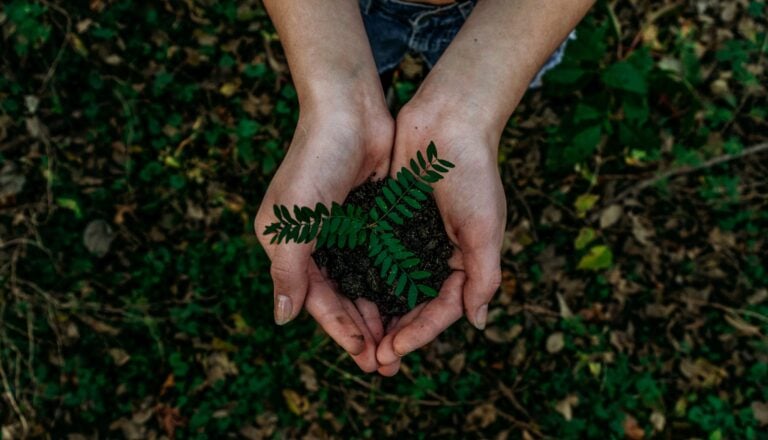5 Fun Ways to Teach Your Kids About Sustainability
 These days, more and more people are concerned about the environment. It’s a fantastic way to teach kids about the planet and how to be a responsible steward of what we’ve been given.
These days, more and more people are concerned about the environment. It’s a fantastic way to teach kids about the planet and how to be a responsible steward of what we’ve been given.
By practicing sustainability and teaching them how to do it, too, we can ensure that our planet will be around for them, their kids, and their grandkids.
Here are just a few fun ways you can get your kids involved in sustainable practices and help them learn to take care of Mother Earth.
1. Go for walks and pick up trash.
My kids love this activity. It starts at home, and it’s much more meaningful. They can see the impact of their actions on their neighborhood and their home.
Arm your kids with a small trash bag and some gloves. Reusable gloves are the environmentally-friendly way to go about it, but you can use disposable gloves, too.
Go for a family walk and encourage your kids to pick up any trash they see. Not only will their neighborhood start looking more beautiful, but they’re getting exercise and enjoying the sunshine at the same time.
They may even start getting some recognition from neighbors, which will make them feel really good about themselves, too.
2. Make homemade products.
There are all kinds of things you can make at home rather than buying them at the store. Household cleaners, soap, laundry detergent, deodorant, and so much more. Teaching your kids how to make these items will set them up for a lifetime of saving money and the environment.
You can find recipes for these items almost anywhere, and it costs a lot less money to make them than it does to buy them. It’s not only environmentally sustainable to do so, but it’s a great lesson in budgeting and teaching them about how you can make your monthly income stretch even farther. Two lessons in one!
3. Reuse and recycle.
Whenever you’re shopping, pay attention to the types of things your kids can reuse to make a craft. Gallons of milk, egg cartons, popsicle sticks, empty toilet paper rolls, and a lot of other things can be cleaned and reused for all of the crafts they’re always begging to do.
They can make homemade games, instruments, toys, and so much more! If it can’t be reused, teach them how to recycle it.
By the way, if you take your kids to the store with you, make sure to point out how you like to buy products that are good for the environment. This might mean eco friendly diapers, paper towels made from recycled paper, and any other green products.
4. Go outside.
This doesn’t sound like much, but encouraging your kids to play outside more will use less electricity. They don’t need lights, air conditioning, phones, or TV if they’re outside building something with sand in the sandbox or riding a bike. It can foster imagination, promote healthy development, and ensure their bodies get the exercise they need.
Playing outside is one of the most important parts of being a kid.
5. Collect rainwater.
This one is fun because a lot of cities will help you with the cost of water conservation. Check with your local government to see if there are any reimbursement programs for rain barrels or water redistribution.
Collecting rainwater can be used for all sorts of things both inside and outside. Bring your rainwater in and boil it for use with cooking or drinking. Pour it in your ice cube trays and freeze it.
You can also water your household plants with it, or use it to wash dishes. You could even put it in the dog’s bowl.
Use it outside to water your flowers or your vegetable garden, which, coincidentally, is another great way to teach your kids about sustainability and how to grow their own food. It’s just another way you can teach them more than one thing at once while saving huge on your water bill.
Author Bio: Ryan Howard runs Smart Parent Advice, a site that provides parenting advice for moms and dads. Ryan writes about all of the different ups and downs of parenting, provides solutions to common challenges, and reviews products that parents need to purchase for babies and toddlers.


